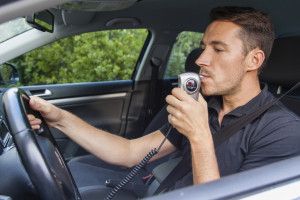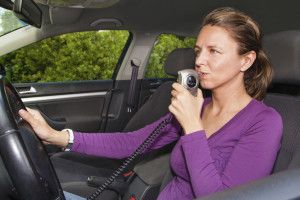 Occurrences of drunk driving have declined dramatically in past decades, but it’s still a major concern: Each day, 28 people in the country die as the result of drunk driving. One strategy for preventing further tragedy is the required installation of ignition interlock devices on the vehicles of drivers convicted of driving under the influence (often those who have more than one conviction). Currently, there are about 150,000 of these systems and counting installed in U.S. vehicles. Whether you’ve been convicted of a DUI, you’re the loved one of a DUI offender, or you’re just a concerned member of the public, it’s a good idea to get the facts on these devices. To get you started, here are answers to seven of the most frequently asked questions regarding interlock devices:
Occurrences of drunk driving have declined dramatically in past decades, but it’s still a major concern: Each day, 28 people in the country die as the result of drunk driving. One strategy for preventing further tragedy is the required installation of ignition interlock devices on the vehicles of drivers convicted of driving under the influence (often those who have more than one conviction). Currently, there are about 150,000 of these systems and counting installed in U.S. vehicles. Whether you’ve been convicted of a DUI, you’re the loved one of a DUI offender, or you’re just a concerned member of the public, it’s a good idea to get the facts on these devices. To get you started, here are answers to seven of the most frequently asked questions regarding interlock devices:
- How Do Ignition Interlock Devices Work?
Ignition interlock devices are essentially breathalyzers installed in vehicles. They measure the alcohol in breath to determine blood alcohol concentration and prevent a car’s engine from starting if the BAC exceeds a pre-set level, typically around 0.02%.
- Are Ignition Interlocks Constitutional?
Although challenges have been brought, no state appellate court has overturned any interlock statutes in the United States.
- Does an Interlock Stop Someone Else From Driving the Car?
An interlock device does not restrict who drives a vehicle, so installation does not prevent family members or friends from driving a car (given, of course, that their BAC doesn’t exceed the level set on the device).
- Can’t Someone Else Just Blow Into the Device?
In order to prevent someone from having a sober friend blow into an interlock to start a car, most interlock devices require a rolling retest between five and 15 minutes after the car is first started and then periodically throughout the trip.
- Could an Interlock Device Stop a Running Car?
Interlocks are connected to vehicles’ starter systems, not to their engines. This means that they will not cause a vehicle to suddenly stop, as that would constitute a serious safety hazard.
- Who Pays for Ignition Interlock Devices?
Obviously, a car breathalyzer costs a bit of money; there’s both the initial installation and ongoing monitoring to consider. In most cases, DUI offenders pay for these devices out of their own funds, since it essentially allows them to retain the privilege of driving.
- Do Ignition Interlock Devices Do Any Good?
Most statistics have found interlocks to be very effective in reducing recidivism rates. When installed, they’re associated with an approximately 70% lower impaired driving arrest rate. And even after the devices are removed, offenders who have had them are 39% less likely to have a repeat offense than offenders who have never had an interlock installed. Of course, other kinds of support and alcoholism treatment should accompany interlock installation in order to contribute to a more permanent solution.
What other questions do you have? Did any of these answers surprise you? Join the discussion in the comments.
 Do’s and Don’ts of an Arizona DUI Stop
Do’s and Don’ts of an Arizona DUI Stop